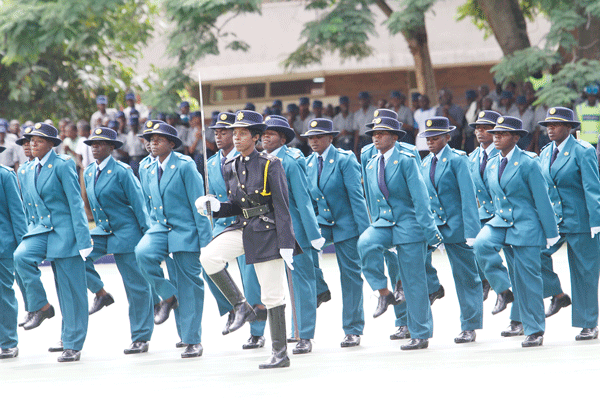
Today is the 16th day, which marks the end of the 16 Days Against Gender-Based Violence Campaign. It began on November 25 the International Day for the Elimination of Violence Against Women. On that particular day, a Moroccan State television channel screened a programme teaching women how to use make up to cover up bruises obtained from domestic violence.
Your Rights: MIRIAM TOSE MAJOME

Needless to say it stirred unprecedented, but not surprising controversy. The station was forced to issue an apology and withdrew the programme. Debate continues to rage unabated on different platforms. Is teaching women how to hide battering scars an acceptance of domestic violence or it is merely helping them to cope from a practical level? My opinion is that you cannot mask abuse with makeup. Scars of any origin should not be shielded or should they ever be worn like an apology. Besides, no amount of makeup can mask and heal the psychological scars that remain long after skin has healed.
The law
The Domestic Violence Act Chapter 5:16 provides protection and relief for victims of domestic violence. Section 80 of the Constitution especially provides for the rights of women and protection of their dignity and worth as equal human beings in the society. Section 80(3) particularly outlaws laws, customs, traditions and cultural practices that infringe upon the rights and personal safety of women.
Interventions and relief
Help is available. There are support and relief structures available for victims. The police are a key resource in the fight against domestic violence. They arrest perpetrators and refer victims to professional counselling, legal, psychological and social support services where it is necessary. Protection orders and interdicts are also obtainable. All acts of domestic violence are criminal offences and if arrested and convicted custodial sentences can be up to 10 years imprisonment. In reality though, many cases not completed, complainants withdraw charges, witnesses become unco-operative and State cases fall apart.
Section 5 role of the police
- Chamisa under fire over US$120K donation
- Mavhunga puts DeMbare into Chibuku quarterfinals
- Pension funds bet on Cabora Bassa oilfields
- Councils defy govt fire tender directive
Keep Reading
It is a requirement for every police station to have at least one officer who is experienced or qualified in dealing with family matters. The officer is required to adopt a victim-friendly and non-judgmental manner when dealing with cases of domestic violence.
Gone are the days when women were turned away for wasting police time when they reported domestic abuse. Unless it was deemed very serious and life threatening, women were told to grow up, grin and bear it and go home and forgive their partners. At best the men were let off with a stern chastisement for failing to handle their private business discreetly while “disciplining” their women.
The Zimbabwe Republic Police has made commendable strides in the manner domestic violence disputes are handled. This has no doubt done much in changing perceptions and possibly behaviour over a long period of time. People have their own die-hard personal and cultural explanations and defences for domestic violence, but with more visible interventions from the police and the courts these toxic attitudes are slowly being chipped away. Police stations of today are different from what they were 20 years ago, especially for women. Police stations are located right in the middle of communities where people live. When people see their neighbours, co-lodgers, fathers, mothers, sisters being arrested for violence, it teaches them consciously or subconsciously that domestic violence is wrong and leads to trouble and inconvenience. It can never be said that the campaign against domestic violence has not achieved anything. Indeed domestic violence remains a serious life threatening menace and it will remain so for a very long time, but the awareness campaigns have made some difference.
Police intervention
The police officer to whom the complaint is made is required to treat and investigate the matter as seriously as they would any other matter. They can advise the complainant to apply for any suitable relief as provided for in the Act including the right to lodge a criminal complaint. Not all victims of domestic violence are aware of their rights. It is the duty of the police to guide them to the right channels. An ingrained culture of fear, shame, guilt and ignorance prevents victims from seeking help. A far as possible the complainant can request to be attended to by a police officer of the same sex as them if they are more comfortable with that bearing in mind their traumatised state.
Male victims are not excluded and the protection provided by the law applies to them as well. Because of shame and misconception of the law, there is a lot of under reporting by male victims so they cannot get the help that they are entitled to. If someone is dissatisfied with the treatment given by the police they have a right to recourse and complaint against the police officer.
Arrest without warrant
The police are empowered to arrest any person suspected of committing acts of domestic violence even without a warrant. They take into consideration the practicalities of the situation such as the safety and well-being of the complainant, the seriousness of the offence and other prevailing factors. If they suspect that a person has committed or is threatening to commit an act of domestic violence they have the power to arrest, charge them and bring them to court within forty eight hours.
Next week we discuss protection orders and interdicts which are other relief structures for victims.











